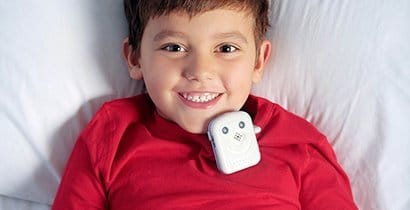Bedwetting is no enjoyable for your child, who's waking up with soaked sheets, or for you, the parent. This problem prevails, with about 5 million children in the U.S. moistening the bed, according to a website. About 20 percent of five-year-olds, 10 percent of seven-year-olds and 5 percent of 10-year-olds damp the bed.
If your kid is moistening the bed, he or she will probably outgrow it, however it can be very difficult in the meantime. The following tips can help you and your child put bed-wetting to rest more quickly:
Stay favorable
Your child can't manage bed-wetting and might be embarrassed that it's occurring. Make certain that you do not blame or punish but rather remain encouraging. If you or your partner wet the bed as a child, it can assist for your own kid to know this and to understand that it's probably a temporary issue. Do not discuss your child's bed-wetting in front of other family members and ensure that if other children in the household learn about it, they understand that teasing is not OK.
Change fluids
It is necessary for your child to remain well hydrated throughout the day, but it can help to restrict liquids in the evening (as long as your child isn't really active with sports or other activities at this time). You ought to likewise limit drinks with caffeine at any time of day, however specifically at night, since they can stimulate the bladder.
Encourage regular toilet usage
Try to motivate your kid to use the toilet regularly throughout the day - about every two hours if possible. And he or she ought to establish the practice of utilizing the restroom prior to bed. Motivate your child to get up in the evening to utilize the toilet if he or she wakes up and make this easy by supplying small nightlights from the bed room to the restroom. If necessary, you can likewise supply a portable toilet.
Focus on the favorable
While you should never ever blame your child for moistening the bed, a benefit system can help supply favorable support. Keep a shiny star or delighted face sticker chart to keep an eye on dry nights, and when your kid reaches a certain number of days in a row, provide a little reward or toy.
Eliminate irregularity
Perhaps surprisingly, bed-wetting can be related to irregularity. Big or hard poop can fill the anus and put more pressure on the bladder, which can trigger nighttime bed-wetting and even daytime accidents. Take a look at your kid's bowel practices to see if he or she is having an everyday bowel movement which the stool doesn't look hard. If it does, increase the amount of fluid and fiber your kid gets with drinks and foods like apple juice, fruits, vegetables and entire grains.
Speak with your child's pediatrician
For the most part, bed-wetting is momentary and your child will outgrow it without any treatment. However it can assist to talk to your kid's pediatrician about the problem. The doctor can speak with you about your kid's fluid consumption, bowel and bladder routines and family history. Based upon this information, she or he might suggest dismissing issues such as a urinary system infection. If no particular cause is identified, the doctor can offer practical suggestions and suggestions for dealing with bed-wetting.
Your kid's physician may advise a
Enuresis alarm if other changes have not been successful. You can purchase these battery-operated sensing units without a prescription at many pharmacies, and they link to a pad on your child's pajamas or bedding. When wetness is spotted, an alarm will sound, and preferably your child will be able to stop the stream of urine and go to the toilet to end up. These devices can assist, however they might require numerous months to be effective.

Post a Comment